The third season of The X-Files is a remarkable season of television. Self-assured and of consistent high quality: unlike any other season you have to venture deep into its episode count to find its first rotten episode, of which there are very few. If the first two seasons were the show finding its feet, here it’s striding forward confidently. The series is now capable of handling a variety of tones and genres, the characters and set up so strong that they can accommodate anything the writers want to experiment with. As well as new frontiers, like settling on big international movie-style two-parters for its mythology stories, the season also revisits past ideas and offers the ultimate versions of previously attempted tales, whether Wetwired being a truly successful version of season 2’s Blood or Grotesque being a better ‘reincarnated killer in the form of a former partner/mentor’ episode than those that dominated so much of the first season.
The show is now so aware and confident regarding itself that it can even begin to mock itself. In that regard, this is very much a writers season. A specific writer’s season: Darin Morgan. His three episodes rank among the very best of the series, introducing a new flavour that he permeates throughout the whole season in his role as story editor. Many episodes now feel like their own fully realised world that Mulder and Scully are stepping into and not just characters and scenes existing purely by hinging on the investigation. Living breathing stories, the agents inserted into what would still be an engaging short story without them. But Mulder and Scully are still great, of course, with David Duchovny and Gillian Anderson now effortlessly their characters. The show has real charm now, real character, and it makes the first season seem bland by comparison. Maybe I’ll discover differently as my rewatch continues but I think this is the best season. The show’s third year is The X-Files at its peak.
Best Character: Scully
The season begins with an episode which flips the script from last season, with Scully having to reckon with Mulder’s disappearance and possible death. It’s a repetitive beat but it marks the first step in the third season’s committed development of Scully as a character. Mulder felt like the lead of the show in the first two seasons, particularly in the mythology episodes, although the writers did have to write around Anderson’s pregnancy which removed her from the show for a while. But now she’s no longer playing second fiddle. She’s a co-lead. Her investment in the conspiracy is confirmed when she loses her sister early in the season, and we finally begin to get some repercussions and exploration of Scully’s abduction. She’s now as intrinsically linked to the overall narrative as Mulder.
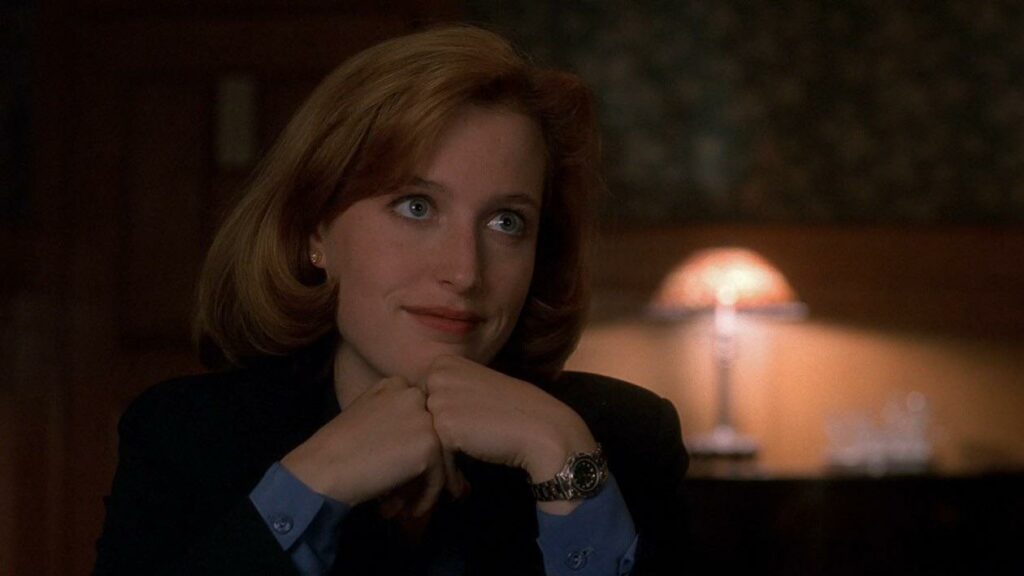
Overall, Scully is much better served by the mythology episodes this season. Her sceptical outlook is given more credence. She’s not simply denying the existence of aliens after looking at aliens anymore. If anything, her theories on human experimentation, the US government continuing horrific experiments started by Nazis and the Japanese, are more interesting than the alien plot. She even gets her own vital subplots. While Mulder is off doing action movie stuff like jumping on trains in the Nisei/731 two-parter, she has the better, more intimate story. She has to face the reality of her previous abduction, meet fellow abductees, and witnesses hints at the cancer storyline to come.
But it’s not just the mythology episodes. In the show at large, Scully is written with greater emotional range. She gets to be angry hunting down her sister’s killer, we finally get an episode dealing with her religious beliefs with Revelations, and finally the writers discover that Gillian Anderson can be really funny. I love the way Darin Morgan writes her in his episodes. She’s totally calm in the face of ridiculousness. Her phone calls with Mulder in War of the Coprophages, instantly giving Mulder scientific explanations for weird deaths, are fantastic. We begin to see more of Scully’s life outside of work, when previously we spent more time in Mulder’s apartment than her’s, including the trilogy of episodes featuring her dog Queequeg. Even an episode like Wetwired, where Scully is subjected to paranoid delusions, would previously have featured Mulder losing his mind and Scully trying to help, like in Anasazi, but it’s much more interesting when reversed.
Biggest Disappointment: The List (S3E5)
The List begins so well. The episode has such a strong sense of atmosphere and incredible visuals, perfectly fitting the location of a prison. Everything feels oppressive, from the moody lighting (taking ‘The Green Mile’ a little too literally with the colour) to the Florida heat. It’s truly amazing that a weekly network show in the nineties could consistently look this good, even for a random episode like this. The plot starts off with plenty of intrigue. A prisoner is seemingly back from the dead to inflict vengeance on five who wronged him, with no answer as to how his victims end up dead in the prison. Is this a real supernatural threat or a ploy by the great guest cast of prisoners and guards? The episode slowly builds a satisfying and complex plot…
… and then ruins it with a simple ending. I would have preferred the episode if it was ultimately a ploy. A conspiracy. Or if the character they set up to be the reincarnated prisoner was in fact the killer. But at the end it’s revealed all the best elements of the episode were simply misdirection. The dead prisoner simply comes back as a ghost and kills people. He can appear and disappear at will, disregarding the mystery of how the deaths occurred that most of the episode is concerned with. The episode ends with the killer appearing behind the warden in his car, causing him to crash into a tree. It turns a unique premise into a complete copy of the opening of season 2’s Fresh Bones. It’s even the same tree the car crashes into! The List is a good episode that devolves into the ‘revenge from beyond the grave’ plotline that dominated so much of season 1 with little new.
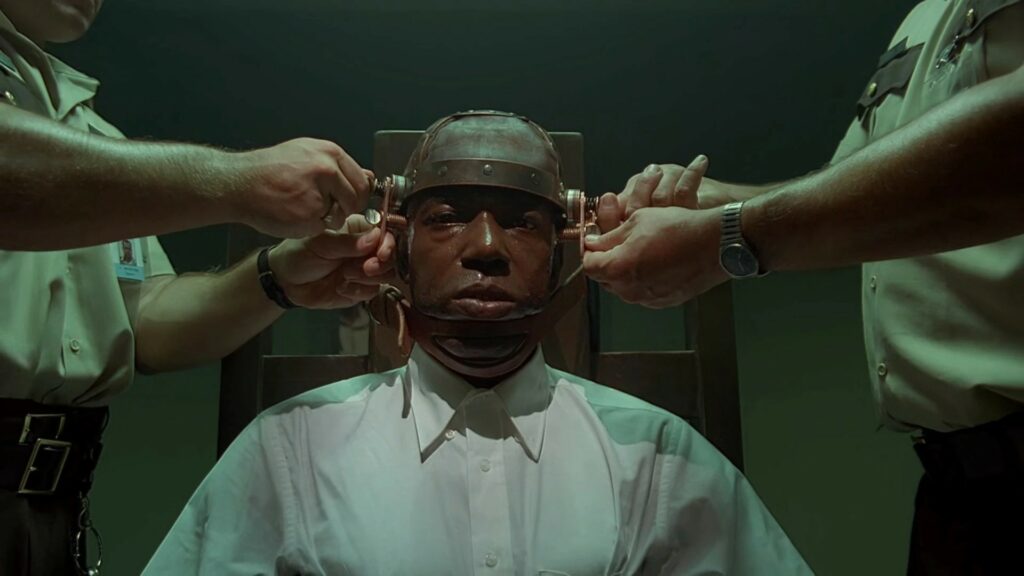
Most Underrated Episode: Revelations (S3E11)
I had no memory of Revelations before rewatching it but it’s an episode that deserves to be remembered. The plot isn’t anything special. A stigmatic boy is hunted by an agent of the devil. It devolves into a very silly ending at a recycling plant where the bad guy throws himself into a pulping machine and Scully only finds the location because she interprets someone saying “full circle” to be a reference to the recycling symbol. But this episode isn’t about plot, it’s about character. It’s a great role reversal episode with Scully as the believer and Mulder the sceptic. She wants his trust and he doesn’t give it, leading to some solid tension and unique conflict between them. The episode adds another layer to Scully, finally dealing with her faith and the fascinating contradiction of her scientific beliefs and Catholicism. Revelations also features some great guest stars, including R. Lee Ermey and Kenneth Walsh, basically just reprising his role as Windom Earle from Twin Peaks, which is no bad thing. The best of the batch might be Michael Berryman, however. He gets to play against type and considers this to be his favourite role.
Unpopular Opinion: Syzygy (S3E13) is overrated and a herald of things to come
Syzygy, otherwise known as ‘the one with Ryan Reynolds,’ has some fun moments but it marks a dangerous change in series creator Chris Carter. The tonal palette of the show has opened up, expanded by new writers, and now Carter wants to have a go at writing his own comedy episode. The issue is he’s not very good at it. Carter was a talented writer, he deserves credit and respect for creating this wonderful show, but he’s not funny and some of the worst episodes to come are from him trying to be. This one isn’t terrible but it’s not great either. Syzygy also suffers from immediately following War of the Coprophages, a superior episode it bares many similarities to. Scully is jealous of Mulder and another woman but, unlike War, it is taken to such an extreme that there is no meaningful characterisation, just goofiness.
Syzygy is also Carter being self-aware for the first time. He works best in a vacuum of his own seriousness and sincerity, not when he’s trying to work on some extra meta level. I don’t think Carter completely understands why some fans like the show, and what its actual strengths are. He wants to be in on the joke and starts reacting to early fan discussions in this episode. Syzygy is his response to people wondering if Mulder and Scully would ever get together romantically (his answer being no, before changing his mind a few seasons later) while also throwing in a self-aware joke about how Scully never drives. These elements aren’t awful here but they are the first hints of Carter’s sensibilities that would damage the show in the future.
Best Guest Star: Robert Wisden as Robert Patrick Modell in Pusher (S3E17)
Okay, this should probably go to Peter Boyle but I’ll talk about him later. Wisden is a worthy recipient, however. I’ve had his voice saying “cerulean blue” swirling in my mind since I first watched this episode years ago. What makes The X-Files great is that it’s a show that gives jobbing actors a place to shine. Wisden has appeared in a bunch of shows but it’s this episode he’s remembered for more than anything else: a starring role in an exceptional episode of television. It’s easy to read too much into episodes written by Vince Gilligan knowing he’ll come to create Breaking Bad, but here the comparison is apt.
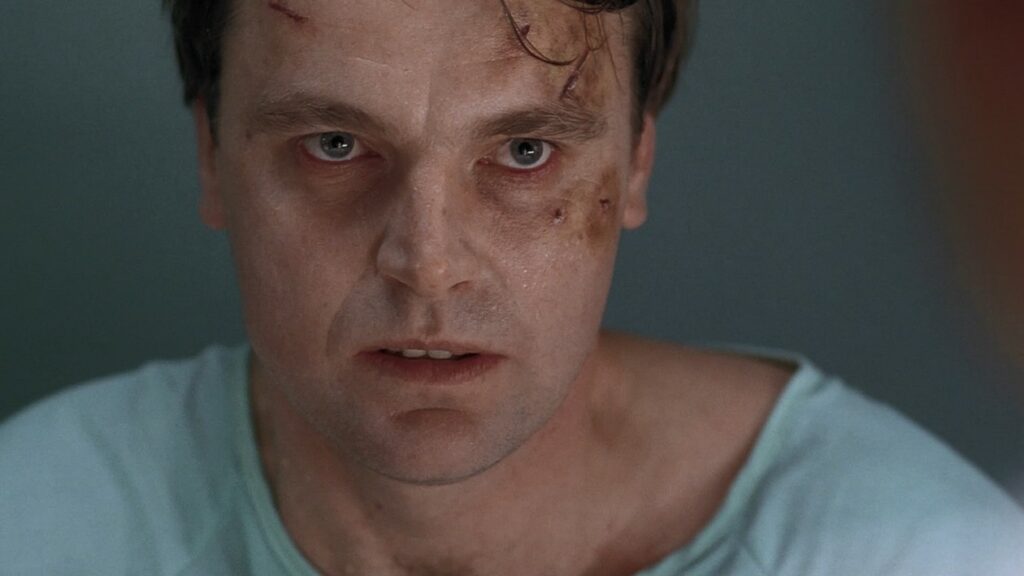
Modell is a character in the Walter White mould, or perhaps vice versa. He’s a regular guy, something of a loser, who gets a cancer diagnosis and breaks bad. He uses his newly acquired mind control powers to inflate his ego in his remaining months. He’s a well written baddie perfectly performed. Modell is never sympathetic, he’s a monster, but he’s so engaging and entertaining to watch. Wisden captures the charisma, insanity, and sense of fun, while also feeling and looking like a fairly regular guy. And all the best X-Files characters have three names; Robert Patrick Modell is no exception.
Best Monster: ‘Big Blue’ in Quagmire (S3E22)
Big Blue is the season’s best monster because it knows when to stay out of the way. Which is basically the entire episode. It’s a classic cryptozoological beast the show kind of has to cover at some point, North America’s answer to the Loch Ness Monster, and the episode is aware of how silly it could possibly be so skirts the issue deftly. Quagmire utilises the monster as an idea, imbuing it with greater meaning. It comes to symbolise Mulder’s hunt for the truth, his Moby Dick he relentlessly pursues. It’s an excuse to gain further insight into both Mulder and Scully, as she playfully challenges his way of thinking, and we just get to spend a joyful, low stakes adventure with these characters interacting with each other. The scene of them stranded on a rock in a lake, talking about Moby Dick and why Mulder wants a peg leg, is so charming. As are the cast of quirky supporting characters who orbit the lake searching for the beast. Big Blue does literally pop up in the final shot, symbolising that the truth is out there, but really it served its role being remaining submerged for the previous 44 minutes.
The ‘What the Hell Did I Just Watch?’ Award: Avatar (S3E21)
Mitch Pileggi’s Walter Skinner became a firm fan favourite across the second and third seasons and it makes sense for the show to focus an episode on this supporting character. The plot: Skinner murders a prostitute. It’s an incredibly strange decision to make, for this story to be the ‘in’ into a Skinner story. And it only gets stranger. Skinner is seeing visions of an old lady and Mulder believes he’s haunted by a succubus, a sex demon. The episode makes several cineliterate horror references, from The Shining with the beautiful woman who turns into an old lady and a barman who looks just like Lloyd, to the red coat from Don’t Look Now.
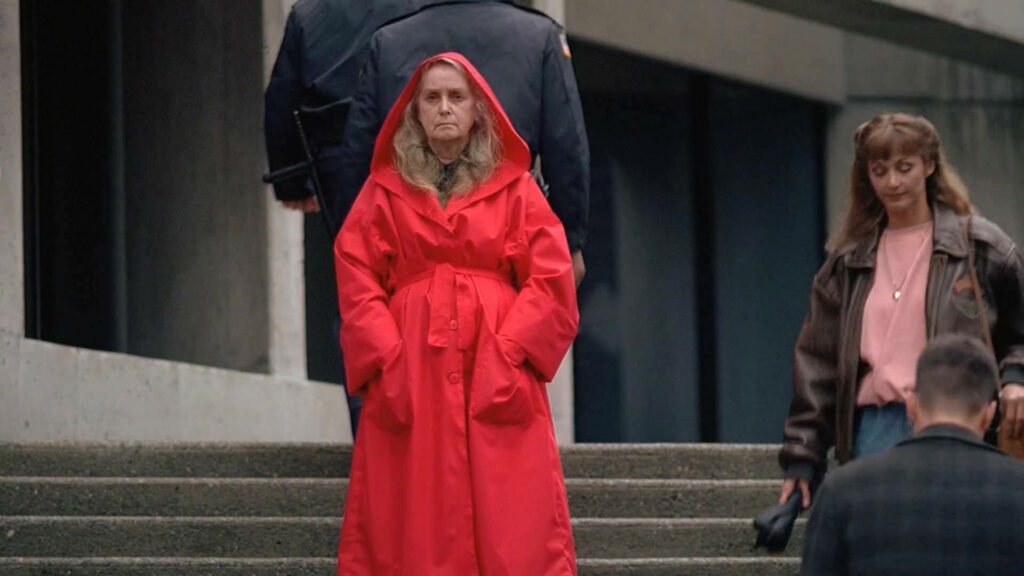
The episode is an almost meta story of realising we don’t know anything about Skinner outside of his work, with Mulder and Scully delving into his private life. Jennifer Hetrick is a welcome addition as Sharon Skinner, Walter’s wife, who is known for playing Vash across two Star Trek shows, continuing her attraction to bald men. There is some good meat in the story regarding Mulder and Scully having to return the trust Skinner usually places in them, inversing their roles, as they fight for his innocence. But the episode turns from one wild plot of sex demons towards a completely different plot, with a government conspiracy out to frame Skinner, and the succubus is actually a protective spirit from Vietnam who takes the form of women in his life. It all makes very little sense and is a baffling choice of story for Skinner, who we learn very little extra information about.
Most Nineties Episode: D.P.O (S3E3)
D.P.O screams nineties. It’s so nineties that it feels like a modern day show trying too hard to capture the nineties setting, like Stranger Things and the eighties. The episode features multiple songs by The Vandals, a band series creator Chris Carter is a big fan of. But it’s more than that; it’s everything. The clothes. The teenager’s bedroom set. The language. The arcade with its Street Fighter knockoff. The casting of young Jack Black and Giovanni Ribisi. Even some of the editing choices and visual effects. The episode is so wonderfully, disgustingly nineties. It also wins the ‘best end credit’ award for having Chris Carter’s executive producer credit creatively appear on a TV within the episode.
Worst Mythology Episode: The Blessing Way (S3E1)
The Blessing Way is The X-Files’ answer to Star Trek: The Next Generation’s The Best of Both Worlds. A great season finale ending with a big cliffhanger given a lame conclusion in the following premiere. There is no satisfying way to answer Anasazi’s cliffhanger. How did Mulder escape the buried train car as the Cigarette-Smoking Man set it ablaze? Well, he just sort of climbed out offscreen. But he’s still dead! Cue the tropey, culturally-questionable hokey scenes of Mulder being brought back to life with Native American magic, floating in space and having dead people talk to him. It’s bad. It’s really bad, and it stops the momentum from the previous episode dead. The X-Files can do two-parters well but three-parters is a step too far.
The Scully side of things is better but not by much. I like the focus on her and her reaction to Mulder’s ‘death’ but it feels too much of a repeat of what Mulder went through when she was missing last season. Otherwise, she’s just caught in a MacGuffin hunt for secret files. The episode tries its best to convince us Skinner is a bad guy and is going to kill Scully but, at this point, after developing him so well last season, making us believe such an extreme notion is an impossible task. The episode ends on its own cliffhanger, a standoff between Scully and Skinner, guns drawn, when there’s a knock at the door, which is obviously Mulder. It’s just such artificial drama I can’t buy into. The Blessing Way is a middle instalment that lets down an otherwise great trilogy of episodes.
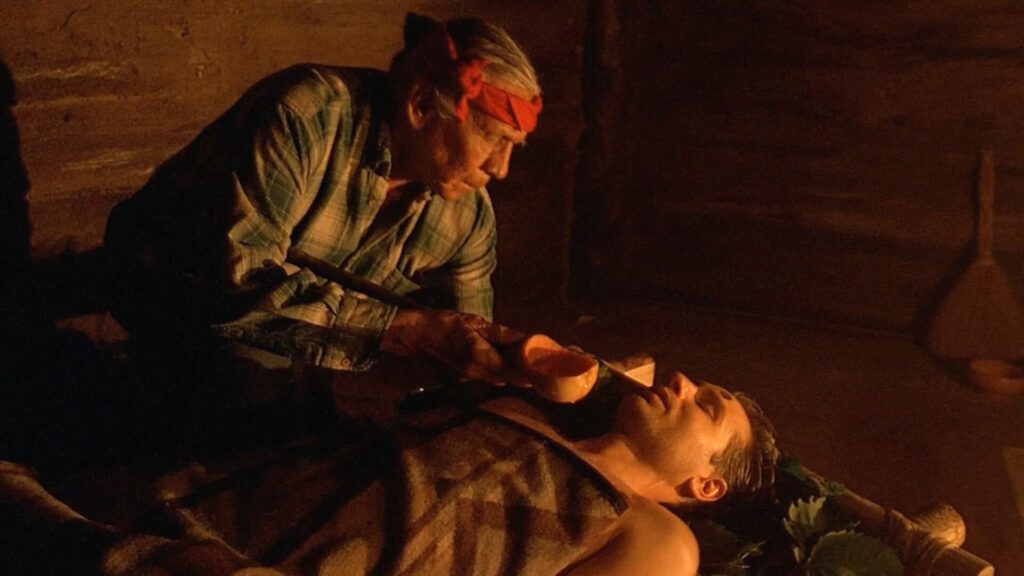
Best Mythology Episode: Paper Clip (S3E2)
Paper Clip is an iconic mythology episode of The X-Files. The imagery alone is the best and most memorable of any alien-focused episode. Mulder and Scully in that mining facility, flashlights in the dark, getting shot at by soldiers as they find evidence of a global extraterrestrial conspiracy, seeing a UFO hover overhead, the little aliens running past them in the dark. This is the mythology episode. It isn’t a wholly original episode, it’s a familiar plot that follows many of the same beats as most mythology instalments, but its executed extremely well and perhaps never bested.
Paper Clip is firing on all cylinders. The agents are on the run as the conspiracy is widened, including our first look at a meeting of Syndicate members, which I always love, like when we see SPECTRE meeting in Bond films. The Cigarette-Smoking Man loses at the end with Skinner telling him to “pucker up and kiss my ass,” which is one of the most memorable and quotable moments of the series. There are finally some personal stakes for Scully in the mythology so it doesn’t have to rely so heavily on Mulder, with the murder of her sister Melissa. And Krycek becomes a much more interesting character than just being a Syndicate lackey, turning against his superiors to become an unpredictable free agent.
Scully’s scepticism works much better here than it does in other mythology episodes; there’s as much credence to the idea of it all being the government carrying on Nazi-like experiments as there is alien involvement. And Paper Clip actually gives us answers! We learn why Mulder’s sister was abducted, although this answer will change in time. The sprawling mythology gets to a point where, after all the intentional misdirection and unintentional retcons, the viewer, like Mulder, has to pick their own truth from convoluted mess. What we see and learn in Paper Clip is my truth.
Worst Standalone Episode: Teso Dos Bichos (S3E18)
Mulder and Scully vs cats. Teso Dos Bichos is a much derided episode of The X-Files. It’s often listed as the worst instalment of the show by fans, and even by Duchovny and Anderson. But with such a silly premise, surely it must be entertaining on some level, right? A “so bad it’s good” situation? Nope. It’s just terrible. The show is usually good at finding fear in the mundane, the extraordinary at home, but it fails here. The cats were apparently hard to work with and that shows because they don’t do anything. The fake cat attacking Scully is just embarrassing.
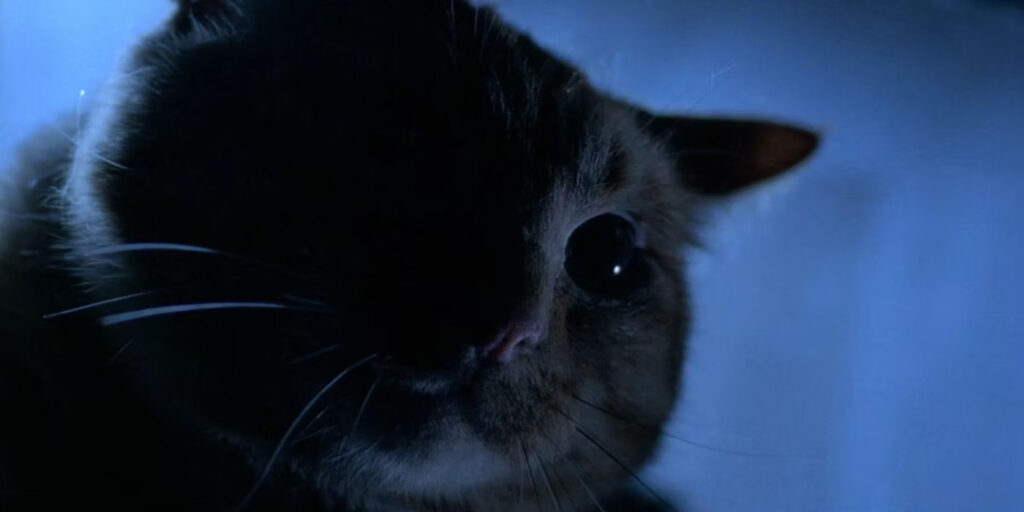
The worst aspect of the episode: it’s boring. It doesn’t embrace the ridiculousness of its premise and instead is one of the most self-serious episodes of the season. It’s also very formulaic. We learn everything there is to learn about the plot in the cold open, all details about the taking of sacred artifacts and the curse of the jaguar spirit revealed, and then we watch it unfold over 40 minutes. There’s no mystery to uncover and instead Mulder and Scully slowly catch up to our level of knowledge while a death occurs every ten minutes. It’s a stock curse story straight out of the 1920s, complete with cultural insensitivity, with no added twist or element.
Best Standalone Episode: Clyde Bruckman’s Final Repose (S3E4)
My most shocking discovery on this rewatch isn’t to do with an episode or storyline but rather that Darin Morgan was only a writer on staff for a single season. He wrote an episode of the second season as a freelance, three of the third while on staff as story editor, and then departed the show until returning for the revival decades later. Despite that, his influence on the show cannot be overstated. He changed what The X-Files could be. His style was often imitated but never duplicated. Chris Carter set a solid foundation for the series that could become a playground for different writers with unique voices to come in and play with the pieces.
Morgan is best remembered for bringing a greater sense of humour to the show with all of his episodes. Jose Chung’s ‘From Outer Space’ feels the most explicitly comedic, and is perhaps a tad overrated. War for the Coprophages is also very funny and, by comparison, maybe a little underrated. What makes Clyde Bruckman’s Final Repose the standout episode of the season is that it’s very funny, yes, but also deeply heartfelt. Written by Morgan during a depressive period, and the titular character inspired by his depressed father, the pained and cathartic voice of the author is heard throughout. With Humbug, Morgan expanded what the palette of The X-Files could be and in Repose he traps it all in one 45-minute episode. Funny, sad, dark, light-hearted, suspenseful, melancholic, it’s a tonal masterpiece. One of the most emotional episodes, where the protagonist kills himself at the end, yet remembered as the show’s greatest comedy.
Peter Boyle is phenomenal as Bruckman, bringing heart and soul that carries the episode, but Mulder and Scully are great, too. This feels like our first proper taste of Darin Morgan’s Scully, who is just as witty as Mulder and, despite denying Bruckman’s psychic powers, connects to him on a human level while Mulder is focused purely on the case rather than the man. This characterisation is something the show clumsily stumbled into last season, hurting episodes like Excelsis Dei where Mulder is too detached, but here it’s explored with great purpose and insight. And while the characters make the episode sing, the plot and themes are also well drawn, with a deadly game of a psychic trying to hunt down and kill another psychic leading to discussions on free will and determinism.
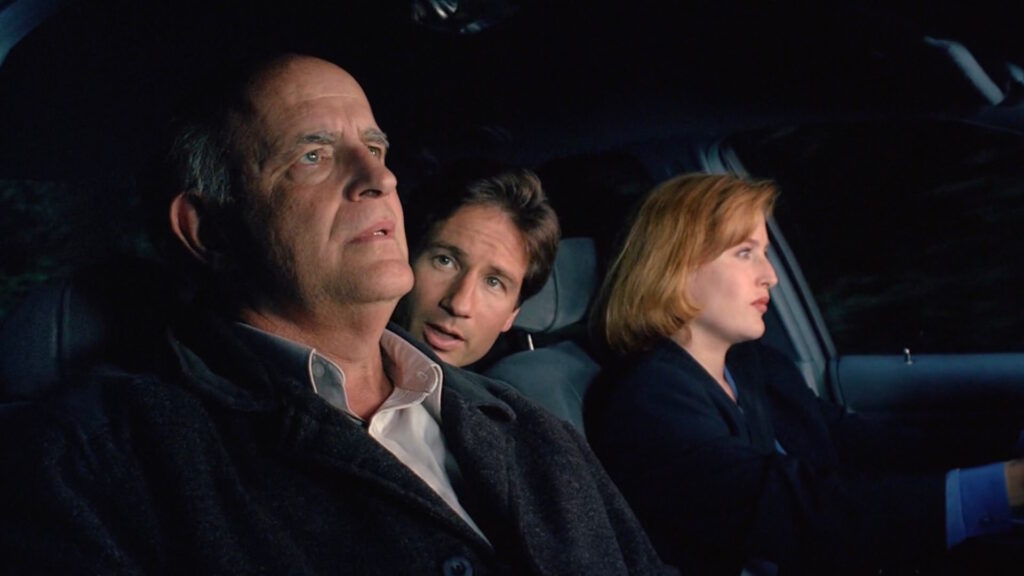
Clyde Bruckman’s Final Repose might seem like the obvious answer for the best episode of the season. It’s a wholly unoriginal choice. But there’s a reason it is so beloved: hyperbole is impossible when describing it. Everything said about it is true. It’s the best episode of the best season, and likely the best of the series.
Five Worst Episodes:
5. The Walk (S3E7)
4. The Blessing Way (S3E1)
3. Hell Money (S3E19)
2. Avatar (S3E21)
1. Teso Dos Bichos (S3E18)
Five Best Episodes:
5. Jose Chung’s ‘From Outer Space’ (S3E20)
4. Quagmire (S3E22)
3. War of the Coprophages (S3E12)
2. Pusher (S3E17)
1. Clyde Bruckman’s Final Repose (S3E4)
I’ll be back in a few weeks with the best and worst of The X-Files season 4. I’m interested to see if the winning streak of the third season continues or the show’s drop in quality begins earlier than expected.








